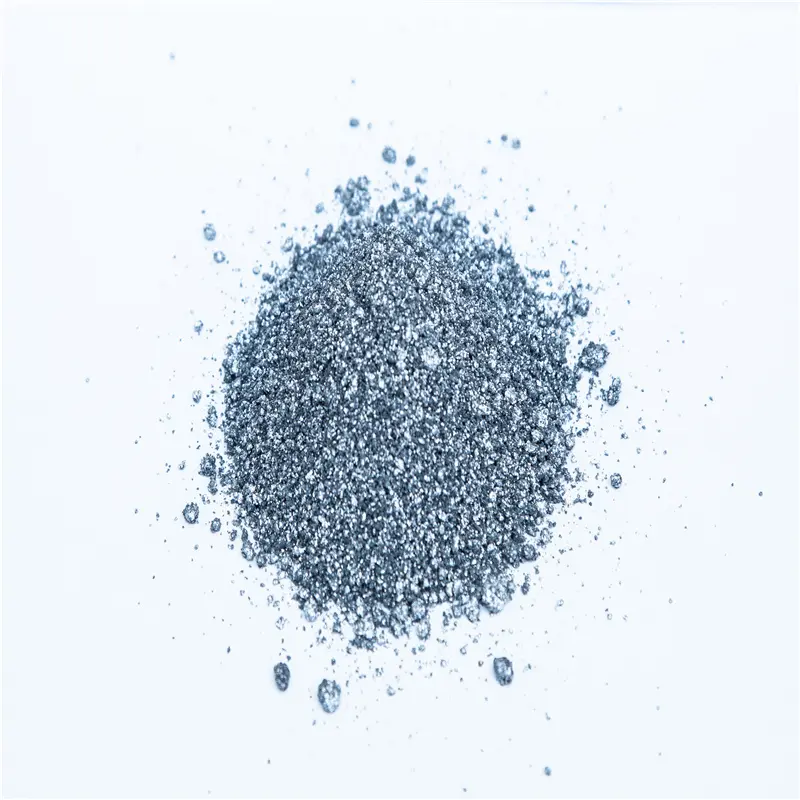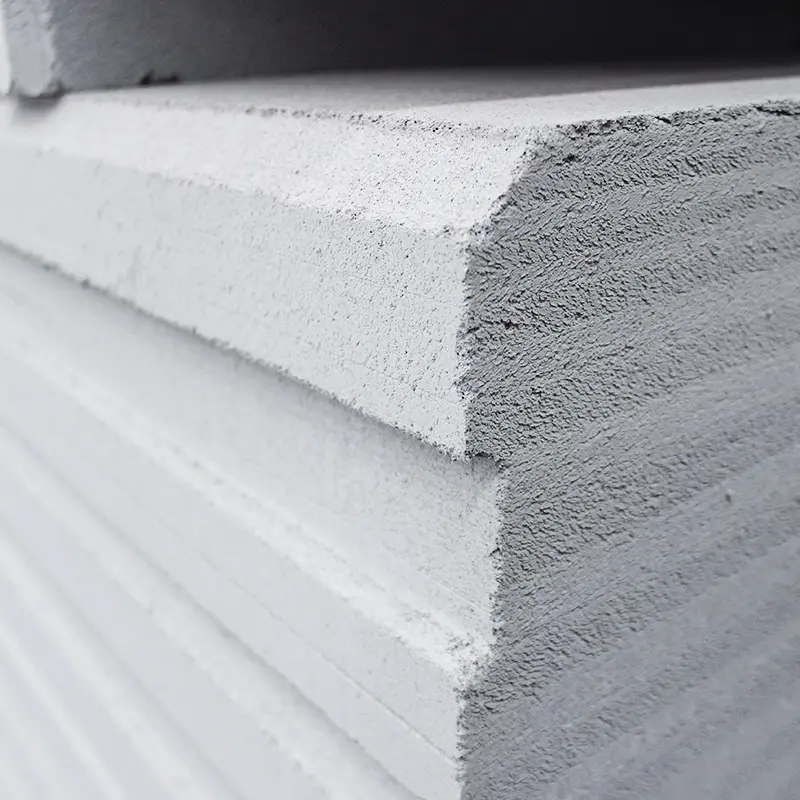In the world of construction, time is money. That’s why concrete accelerators are invaluable tools for contractors and concrete producers alike. This article dives deep into the world of accelerators, focusing specifically on non-chloride accelerators (NCAs), their advantages, and how they can revolutionize your concrete projects. You’ll learn about the benefits of NCAs, their impact on concrete strength, and how they compare to traditional calcium chloride accelerators. We’ll explore real-world applications, from ready mix concrete to precast concrete pieces, and provide practical insights to help you make informed decisions for your next build. This article is worth reading for concrete professionals seeking to improve project timelines, enhance concrete performance, and mitigate potential risks.
What Are Non-Chloride Accelerators (NCAs) and Why Are They Important for Concrete?
Accelerators are concrete admixtures designed to speed up the hydration process of cement, leading to faster setting times and an increase in early strength. While various types exist, non-chloride accelerators are particularly important because they offer a crucial advantage: they don’t contain chloride ions, which are notorious for causing corrosion of steel reinforcement embedded within concrete structures.
Traditional accelerators, such as calcium chloride, are effective but can compromise the long-term durability of concrete by promoting corrosion. NCAs, on the other hand, provide the same benefits of accelerated setting and strength gain without the damaging side effects. This makes them a preferred choice for projects where the longevity and integrity of concrete are paramount. This is why NCAs are vital for ensuring the structural integrity of concrete projects, especially those exposed to harsh environmental conditions.

How Do Non-Chloride Accelerators Differ From Calcium Chloride Accelerators in Concrete Mixes?
The primary difference lies in their chemical composition and the impact they have on concrete. Calcium chloride, a commonly used accelerator, works by speeding up the hydration of cement. However, chloride ions can penetrate the concrete and attack the steel reinforcement, leading to corrosion and potentially compromising the strength of the concrete over time.
NCAs, formulated without chlorides, achieve similar acceleration of concrete hydration through different chemical mechanisms, offering all the advantages without the risk of corrosion. This difference makes NCAs a safer and more durable option, especially for structures that require longevity and resistance to environmental factors. NCAs are often based on materials like calcium nitrite or other proprietary chemical formulations that accelerate hydration without the corrosive effects.
What Are the Advantages of Using NCA in Concrete Projects?
Using NCAs in your concrete projects offers several key advantages:
- Early Strength Gain: NCAs significantly increase the rate at which concrete gains strength, allowing for faster project timelines and quicker turnover.
- Improved Durability: By avoiding chloride-induced corrosion, NCAs contribute to the long-term durability and longevity of concrete structures.
- Cold Weather Performance: NCAs can be particularly beneficial in cold weather conditions, helping to prevent freezing and ensuring proper hydration.
- Reduced Set Time: NCAs reduce the setting time of concrete, which is essential for projects with tight deadlines.
- Enhanced Efficiency: Faster setting times translate to increased efficiency, allowing contractors to move on to subsequent phases of the project more quickly.
- Non-Corrosive Properties: The absence of chloride ions provides non-corrosive properties, protecting embedded steel from corrosion.
Can NCA Accelerate Mortar?
Yes, NCAs are also effective in accelerating the setting time and strength gain of mortar. While concrete is a mix of cement, aggregates, and water, mortar is a mix of cement, fine aggregates (like sand), and water. The same principles of acceleration apply. Using an NCA in mortar can be advantageous in several ways:
- Faster Construction: Allows for quicker bricklaying, tiling, or other mortar-dependent processes.
- Improved Workability: Can enhance the workability of mortar, making it easier to apply and finish.
- Cold Weather Applications: Similar to concrete, NCAs can help prevent freezing and ensure proper setting in colder temperatures.
What Dosage of Non-Chloride Accelerators Is Typically Used?
The dosage of NCA required depends on several factors, including the type of cement, the desired level of acceleration, the ambient temperature, and the specific NCA formulation. A general guideline suggests that you will need accelerator: 4-12 times the amount required to achieve the desired result. However, it is crucial to follow the manufacturer’s recommendations and perform trial mixes to determine the optimal dosage for your specific project.
Table 1: Typical NCA Dosage Ranges
| Factor | Dosage (as a percentage of cement weight) |
|---|---|
| Mild Acceleration | 0.5% – 1.0% |
| Moderate Acceleration | 1.0% – 2.0% |
| High Acceleration | 2.0% – 3.0% (or as recommended by manufacturer) |
Note: Always consult the product specification sheet from the NCA manufacturer. Incorrect dosage can lead to undesirable results, such as flash setting or reduced long-term strength. Proper testing and adjustment of the mix ratio are critical to achieve the desired performance.
Can NCA Be Used in Ready Mix Concrete and Precast Concrete Pieces?
Absolutely! NCAs are commonly used in both ready mix concrete and precast concrete pieces.
- Ready Mix Concrete: NCAs are particularly beneficial for ready mix concrete due to the need for timely delivery and placement. They allow concrete producers to provide concrete that sets and hardens quickly, which is crucial for projects with tight schedules. NCAs also help to offset the effects of cold weather, ensuring that concrete properly cures even in colder temperatures.
- Precast Concrete Pieces: In precast concrete pieces, NCAs offer significant advantages. They accelerate the manufacturing process, allowing for faster mold turnover and increased production rates. The early strength gain provided by NCAs enables quicker demolding and handling of precast concrete pieces. This can lead to faster delivery times and reduced costs.

Are There Any Safety Considerations When Using Non-Chloride Accelerators?
While NCAs are generally considered safer than calcium chloride-based accelerators due to their non-corrosive nature, it is crucial to follow safety best practices when handling any chemical admixture.
- Personal Protective Equipment (PPE): Always wear appropriate PPE, including gloves, eye protection, and a respirator, to prevent skin and inhalation exposure.
- Material Safety Data Sheets (MSDS): Read and understand the MSDS for the specific NCA you are using. These sheets provide crucial information about hazards, handling procedures, and first aid measures.
- Storage: Store NCAs in a cool, dry place, away from direct sunlight and extreme temperatures.
- Proper Mixing: Ensure that the NCA is properly mixed into the concrete according to the manufacturer’s instructions. Inconsistent mixing can affect performance.
- Spills: Clean up any spills immediately using appropriate absorbent materials and dispose of them according to local regulations.
- Skin Contact: Rinse exposed skin with plenty of water. If irritation occurs, seek medical attention.
- Eye Contact: Flush eyes with water for 15 minutes and seek medical attention.
- Ingestion: Do not induce vomiting. Drink plenty of water and seek medical attention.
By adhering to these safety guidelines, you can ensure the safe and effective use of NCAs in your concrete projects.
How Can You Ensure the Quality and Performance of Non-Chloride Accelerators?
Ensuring the quality and performance of NCAs is critical to achieving the desired results in your concrete projects.
- Choose Reputable Suppliers: Select suppliers with a proven track record of providing high-quality concrete admixtures.
- Request Certifications: Ask for certifications, such as ISO 9001, to verify that the manufacturer follows strict quality control procedures.
- Review Technical Data: Carefully review the technical data sheets provided by the manufacturer. These sheets should provide detailed information about the product’s properties, performance characteristics, and recommended dosage.
- Perform Trial Mixes: Before using an NCA in a large-scale project, perform trial mixes to assess its performance with the specific cement, aggregates, and water you will be using. This will help you determine the optimal dosage and ensure that the concrete meets the required strength and durability specifications.
- Monitor Fresh Concrete: Regularly monitor the properties of the fresh concrete, such as slump, air content, and setting time. This will help you identify any potential issues early on and make adjustments as needed.
- Conduct Quality Control Tests: Conduct regular quality control tests to verify that the hardened concrete meets the required strength and durability criteria.
- Storage and Handling: Store and handle NCAs correctly, following the manufacturer’s instructions. Improper storage or handling can degrade the product’s performance.
By following these steps, you can maximize the chances of achieving the desired results and ensuring the long-term durability of your concrete structures.
Can Fritz-Pak Help in Non-Chloride Accelerator Applications?
Absolutely! Fritz-Pak offers a range of innovative solutions, like Fritz-Pak’s Non-Chloride Concrete Accelerator, designed to simplify and enhance the use of NCAs.
Fritz-Pak’s non-chloride concrete accelerator offers a pre-measured, easy-to-use solution that eliminates the need for on-site weighing and measuring, saving contractors valuable time and reducing the risk of dosage errors. This ensures consistent performance and helps to avoid costly mistakes that could compromise the quality of the concrete. Fritz-Pak also provides excellent technical support, helping contractors optimize their use of NCAs and achieve the best possible results.

Fritz-Pak’s products are designed to provide a solution for all of your NCA needs, and they strive to make the use of concrete admixtures easier, more efficient, and more reliable. Fritz-Pak’s non-chloride products are a game-changer for anyone looking to enhance their concrete projects. These pre-portioned packets provide the correct dosage, making the procedure simple and safer.
Where Can You Find Non-Chloride Accelerators for Your Concrete Projects?
NCAs are readily available from a variety of suppliers. Here are some of the best places to source NCAs for your projects:
- Concrete Admixture Suppliers: Specialized suppliers, like us, offer a comprehensive range of concrete admixtures, including various NCA formulations. These suppliers often provide expert technical support and can help you select the right product for your specific needs. You may also find NCA products from BTZmoc’s Aluminum paste for aerated concrete.
- Construction Material Distributors: Local distributors often carry a selection of concrete admixtures, including NCAs. This can be a convenient option, especially if you need the product quickly.
- Online Retailers: Many online retailers offer a wide variety of concrete admixtures, making it easy to compare products and prices. However, ensure that you purchase from a reputable source to guarantee product quality.
- Industry Exhibitions and Trade Shows: These events provide an excellent opportunity to connect with suppliers, learn about the latest products, and get technical advice from experts.
- Direct from Manufacturers: Some manufacturers sell directly to concrete producers and contractors. This can often provide the best pricing and access to specialized technical support.
When sourcing NCAs, it is essential to consider factors such as product quality, technical support, and cost. Be sure to compare different suppliers and select the one that best meets your needs. To achieve the best results and make concrete more resilient, you can also consider combining NCAs with materials such as ALC Wallboard, which can add to the strength and insulation properties of the structure.
Conclusion: Key Takeaways for Using Non-Chloride Accelerators in Concrete
In conclusion, non-chloride accelerators are a vital tool for any concrete professional looking to improve project efficiency, enhance concrete performance, and ensure long-term durability. Here’s a quick recap of the most important things to remember:
- NCAs provide faster setting times and early strength gain without the risk of corrosion associated with chloride-based accelerators.
- They are beneficial in both ready mix concrete and precast concrete pieces, as well as mortar.
- Always follow the manufacturer’s recommended dosage and perform trial mixes to ensure optimal performance.
- Adhere to safety best practices when handling concrete admixtures.
- Source NCAs from reputable suppliers and choose AAC Block to build your project.
By incorporating NCAs into your projects, you can save you time and money while building concrete structures that are stronger, more durable, and more sustainable.
— END OF FILE —
Post time: 2 月-25-2025




